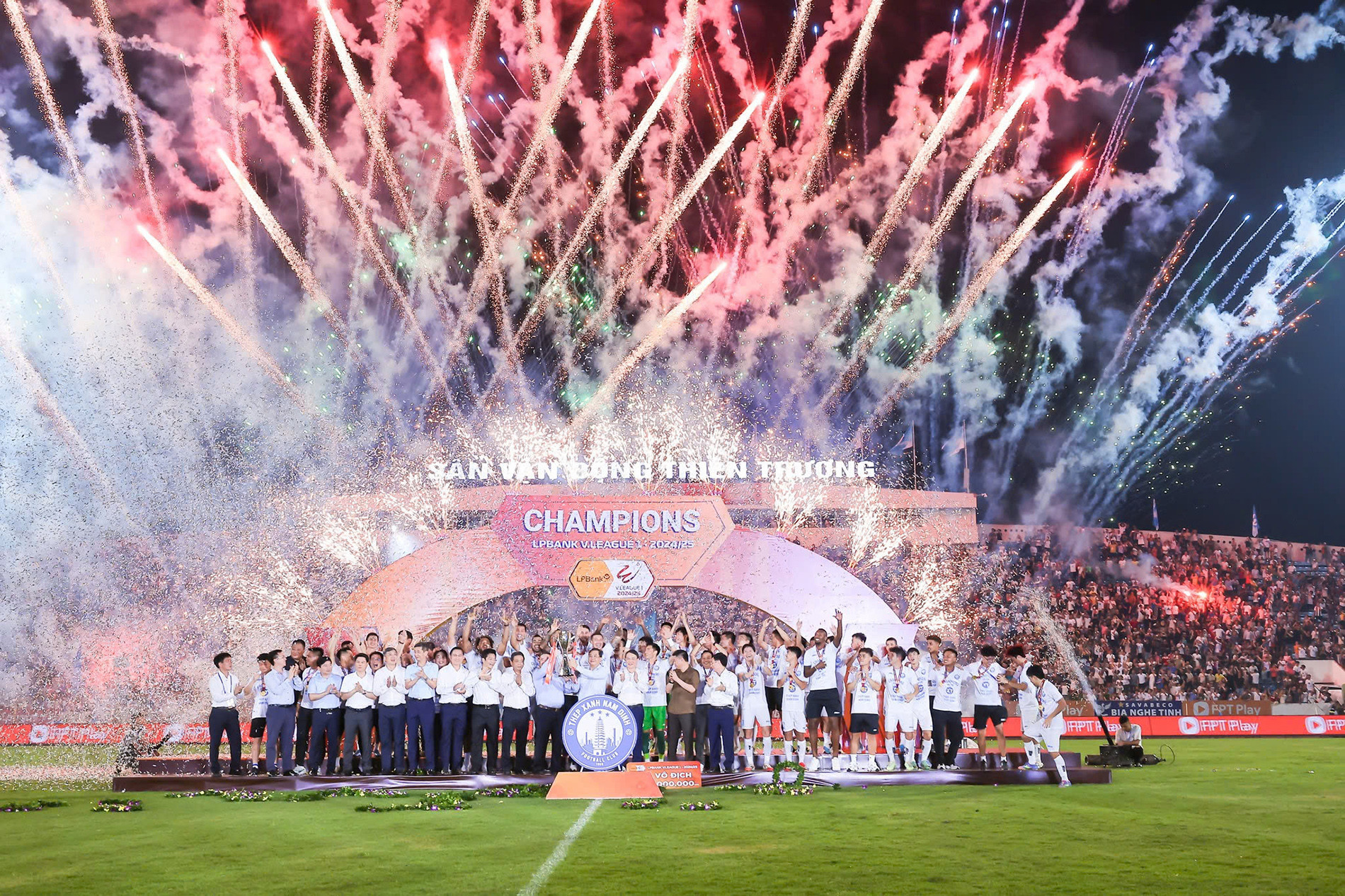The 2024-2025 V-League season has concluded with Nam Dinh claiming the championship for a second consecutive year, while Binh Dinh faced relegation. Despite the outcomes, the season was not highly regarded for its quality, highlighting numerous areas in need of reform.
Slow pace and low engagement

The average actual playing time in V-League matches has never exceeded 55 minutes. Vice President of the Vietnam Football Federation (VFF) Tran Anh Tu pointed out, “Players waste too much time. The ball is in play for too little, reducing match quality.”
This issue persists despite prior warnings. By contrast, even the Premier League - known for its intense competition - has steadily improved its ball-in-play time to 57-58 minutes, or 63-64% of the match, over the past two seasons.
This lack of intensity has affected the Vietnamese national team, particularly in the 2027 Asian Cup qualifiers. Accustomed to a slower pace, players struggled against Malaysia’s aggressive, high-tempo pressing. For coach Kim Sang-sik’s squad to adapt to international play, V-League’s quality must improve.
The slow pace is also linked to how referees implement VAR. This was the first season the league used video assistant referees extensively, and referees still showed uncertainty in reviewing key incidents. Enhancing VAR operation is essential for professional development.
Staying committed to long-term goals
Following the loss to Malaysia, the VFF reaffirmed its stance against mass naturalization. VFF President Tran Quoc Tuan stated, “We are committed to building a strong foundation internally. Any reinforcements must be appropriate, not rushed like Malaysia or Indonesia.”
This mirrors the path taken by Asian football powers like Japan and Uzbekistan, who took decades to build competitive national teams. The real question is whether Vietnam’s leadership has the patience for such long-term investment amid the short-term success of its regional rivals.
The best way to cultivate internal strength is by improving the domestic league. While VFF reiterates this goal yearly, little progress has been made. Scheduling inconsistencies remain a sore point, with packed fixtures followed by extended breaks.
No other national league pauses for nearly three months to accommodate youth tournaments like the SEA Games or AFC U23 Championship. A professional league must run consistently, with regular matches and high standards in player fitness, refereeing, and pitch quality.
Clubs must invest in youth development, prioritizing fitness and speed to meet modern demands. Players, too, must evolve their mindset to keep pace. These elements form the core of Vietnam’s football identity.
There was a time when Vietnam dreamed of reaching the World Cup, driven by fierce competition in a vibrant domestic league. As that intensity faded, so too did national team results. The correlation is telling.
VFF must not allow V-League to continue declining while hoping the national team alone brings glory. Sustainable football success relies on improving the domestic league’s quality, rhythm, and competitiveness to forge players with the stamina, spirit, and sharpness needed for international success.
Many young fans today prefer faster-paced entertainment. Rather than spend 90 minutes on a lackluster V-League match, they opt for high-speed sports like basketball, MMA, or pickleball - or spend hours at a concert. The message is clear: football must compete for attention, and to do so, it must captivate.
PV